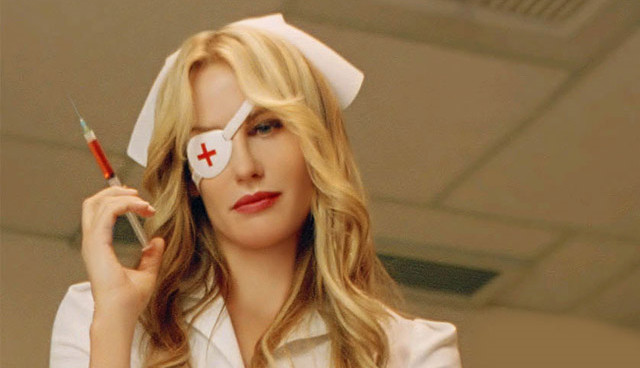
Certainly part of the allure that goes along with films is the incredible impact they can have on popular culture and along with that, the value movies can hold as social currency.
I was a teenager living in the sticks when Pulp Fiction came out and I remember hitchhiking through a blizzard and back to get to the big city to see it (my VHS tape of Reservoir Dogs was a gem in my growing movie collection), and the next day in home room rhyming off details about Royale with Cheeses, going medieval on people, and humming Link Wray’s “Rumble” as if I’d always known the melody.
Later I would learn that Uma Thurman’s bob hairdo was a nod to Anna Karina in so many Jean-Luc Godard films and that Thurman and John Travolta’s butt wriggle at Jack Rabbit Slims was an homage to Karina and her pals shuffling the Madison in Godard’s Bande à part (1964), which also provided the nomenclature for QT’s production company, A Band Apart Films.
I offer this anecdote of my early days as a cineaste to illustrate how pop culture references in cinema, while not at all a new invention, can still offer deep rewards, act as a “gateway drug” to other films, and at the very least boost your odds on trivia night at your favorite pub.
While the following list is limited to only ten films I do want to list a few more here and point out also that below you will NOT find any animated films (otherwise Hotel Transylvania, the LEGO Movie, Shrek, and the Toy Story movies would dominate this list).
If this list were longer you’d most certainly see a wealth of 90s films (Scream, Swingers, and True Romance are brimming with pop culture films, which make them not just great examples of the genres they belong to, but perfect time capsules of the decade from which they sprang), spoof movies (from Blazing Saddles to Scary Movie, few subgenres are as self-referential as these, though one popular spoof film IS listed below), and also filmmakers like Richard Linklater (Dazed and Confused, School of Rock, Boyhood, and Everybody Wants Some!! are all worthy of this list but were left to the side in order to allow for other, less known fare).
While some of these exclusions may seem arbitrary, it is an idiosyncratic list, afterall. Please feel free to list your favorite films that are chock full of pop cult references in the comments section below. Cheers!
10. The Editor (2014)
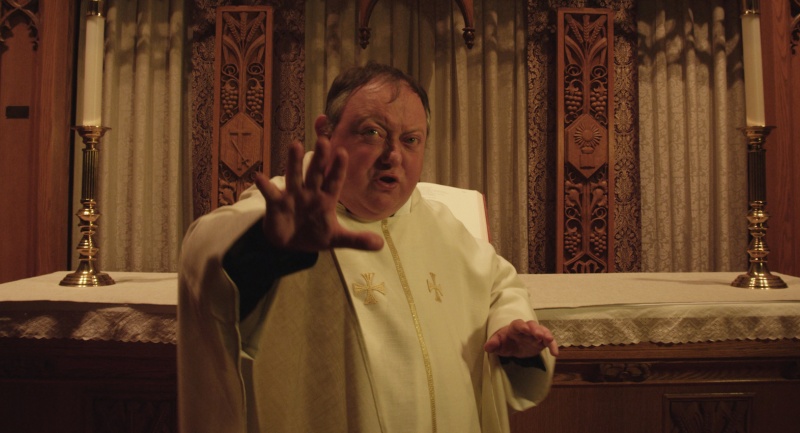
With their eyes focussed on the overworked Italian horror/thriller known as giallo — which had its heyday in the 1970s — directors Adam Brooks and Matthew Kennedy (of the Winnipeg-based film collective Astron-6) attain audacious and inspired synthesis with The Editor.
Combining all the guilty-pleasure giallo genre tropes (including elements of crime fiction, erotica/sexploitation, psychological horror, and slasher) popularized by the likes of Dario Argento, Mario Bava, Paolo Cavara, Lucio Fulci, Mino Guerrini, Umberto Lenzi, and others, The Editor is inundated with kinky sex, over-the-top aerobics exercises, terrifying tarantulas, very elaborate and very violent death scenes, and all mostly enacted to the tune of groovy, synth-driven lounge music.
Brooks and Kennedy, who co-wrote the film (along with Conor Sweeney) and co-star, capitalize on a suitably jocular tone that points to the jugular, The Editor is campy, gory, ill-tempered, and ideal for late night aggregated viewing.
Genre linchpin Udo Kier (Blood for Dracula, Suspiria) adds authenticity to the homage-addled production, as do significant roles from Paz de la Huerta (Enter the Void), Tristan Risk (American Mary) and Human Centipede baddie Laurence R. Harvey.
It’s extremely obvious from what’s on screen that a lot of consideration and care went into this low-budget but high-concept tribute film. The period details are premium, and the formal flourishes are outstanding; from crazy zooms, split-screen frills, and slo-mo froufrou, The Editor overdoes everything with brio. The diehards will canonize it, everyone else might not get it, but that’s how cult films are constructed. Don’t miss it!
9. Army of Darkness (1992)
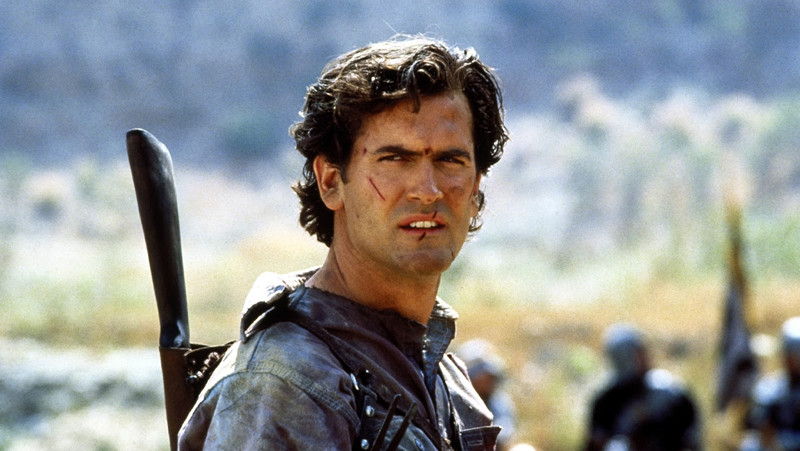
“Alright you Primitive Screwheads, listen up!” The third film in Sam Raimi’s gleefully self-indulgent Evil Dead trilogy (which is also awesomely continuing in the popular TV series Ash Vs the Evil Dead, now in its third season, and a halfway decent 2013 reboot/sequel from Fede Alvarez) stars Bruce Campbell as Ash, the character who has become a cult horror icon, and one whose blithe, OTT rejoinders — “Gimme some sugar, baby!” — are irresistible to all but the most uptight of cinema goer.
Travelling through time by dint of a rift in space-time caused by the cursed text, the Necronomicon Ex-Mortis, Ash finds himself in the Middle Ages, amidst a gullible Medieval village, and tormented by a race of undead beasties called Deadites. While recklessly questing to find a way back to his time, Ash runs afoul a series of trials meant to test his fortitude and a destructive doppelgänger, Evil Ash, is reared.
The tongue-in-cheek yet thoroughly blood-soaked adventures that accrue offer imminently quotable quips, hilarious set-pieces, old-fashioned Ray Harryhausen-style stop-motion homages to many of Raimi’s favorite films of yore (namely The 7th Voyage of Sinbad [1958], and The Day the Earth Stood Still [1951], heaps of gore and splatter, Three Stooges tributes, and inventive old formula fun. It’s not for everyone, fair enough, but it’s the sort of film that has acquired devoted, ardent, and enthusiastic fans.
8. Airplane! (1980)
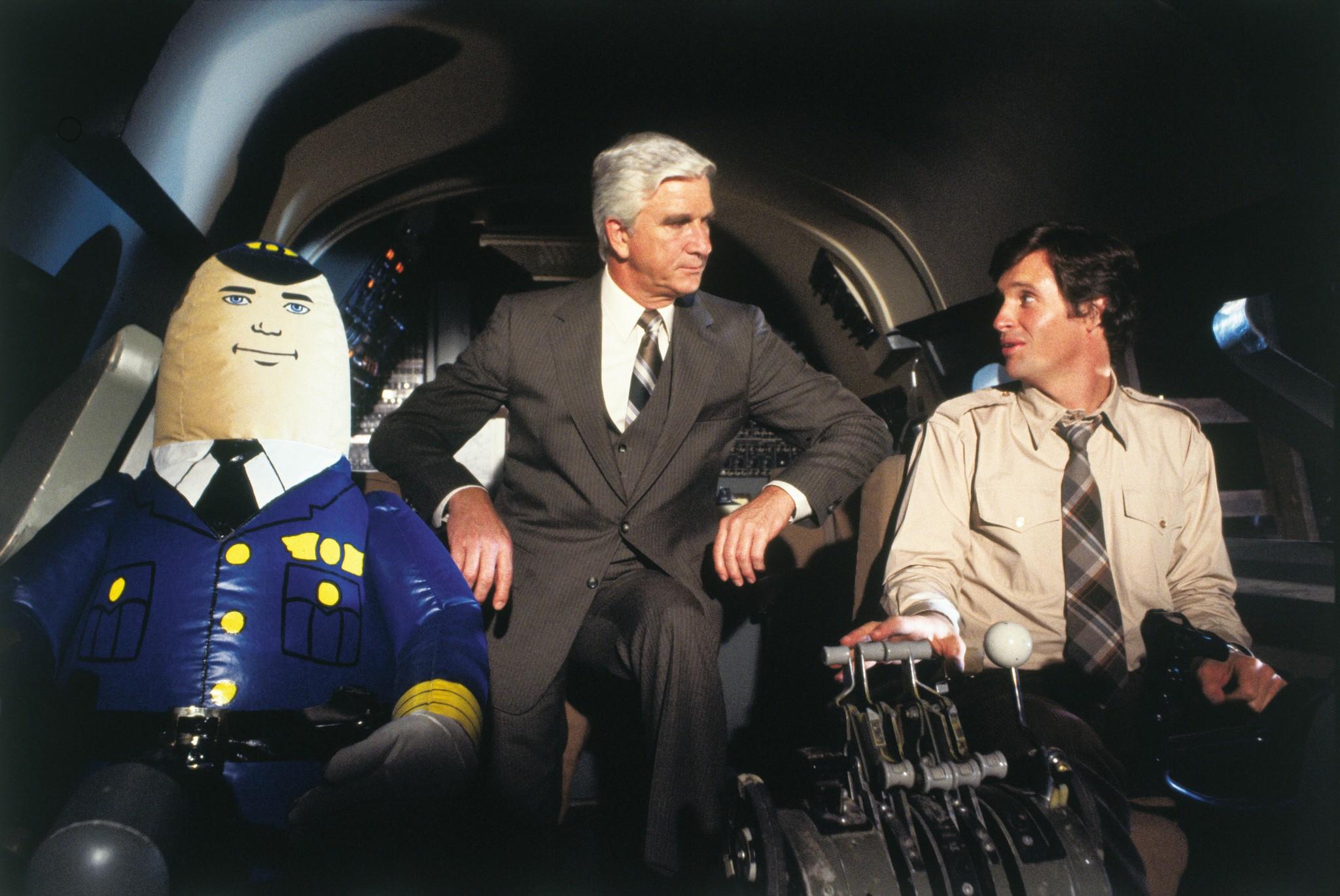
“Joey, have you ever been in a… in a Turkish prison?”
This hysterical satirical parody picture from the triple threat producer/director/writer team of Jim Abrahams, and David and Jerry Zucker is their undisputed wacky masterwork. Blowing the raspberry at the disaster film genre—namely such populist hits as Zero Hour! (1957), Earthquake! (1974), and Towering Inferno (1974)—Airplane! Is best remembered for its lightning-paced slapstick, sight gags and verbal puns.
When a nasty course of food poisoning wipes out the flight crew and several passengers aboard an ill-fated 747, it’s left up to former fighter pilot Ted Striker (Robert Hays), his ex-gal and flight attendant Elaine Dickinson (Julie Hagerty), and the ridiculous Dr. Rumack (Leslie Nielsen) to safely ground the plane and save the remaining crew and passengers.
“Joey, do you like movies about gladiators?”
The endless stream of jokes are juvenile, quite often corny, and almost always reference pop culture, but thankfully the unremitting messing around pays off repeatedly, ensuring that Airplane! is terrifically impossible not to enjoy. “And don’t call me Shirley!”
7. Ghost Dog: The Way of the Samurai (1999)
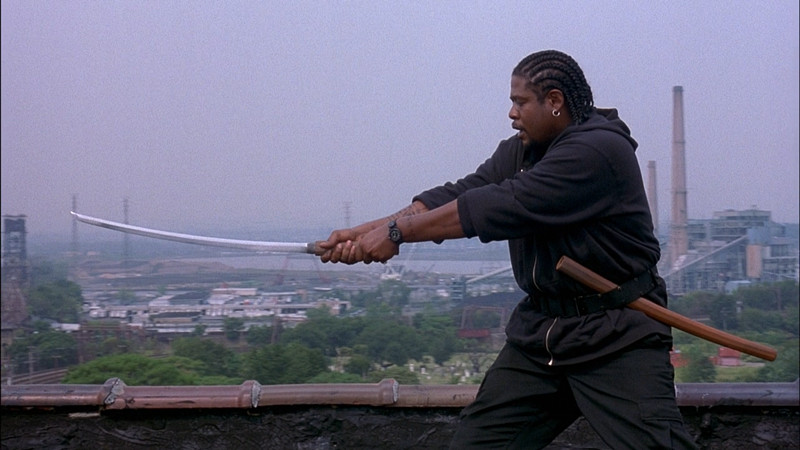
Writer-director Jim Jarmusch’s Ghost Dog: The Way of the Samurai is, simply put, just another one of those hip-hop gangster movies infused with Japanese warrior folklore, filtered through the French existential thrillers of Jean-Pierre Melville, with a splash of Seijun Suzuki for added sting. Got that?
Forest Whitaker astounds as the eponymous Ghost Dog, a contract killer without peer, also the retainer of a Jersey City-based Mafia don named Louie (John Tormey), who saved his life years ago.
An obvious homage to Jean-Pierre Melville’s Le Samouraï (1967), Ghost Dog is an imaginative, stylish, surreal fever dream of a film with a poignant lead performance from Whitaker, a genius score from Wu-Tang Clan’s RZA, and the familiar flourishes and arthouse embellishments that Jarmusch fans have come to expect (there’s also a playful cameo from Gary Farmer, reprising his role as Nobody from 1995’s Dead Man).
That said, this is a melancholic, meditative, and anodyne affair, and not your typical action-thriller at all. If you like your films subversive, off-kilter, deliberately paced, unpredictable, and full to burst with pop culture worship, then Ghost Dog and you may just be a perfect fit.
6. Guardians of the Galaxy (2014)
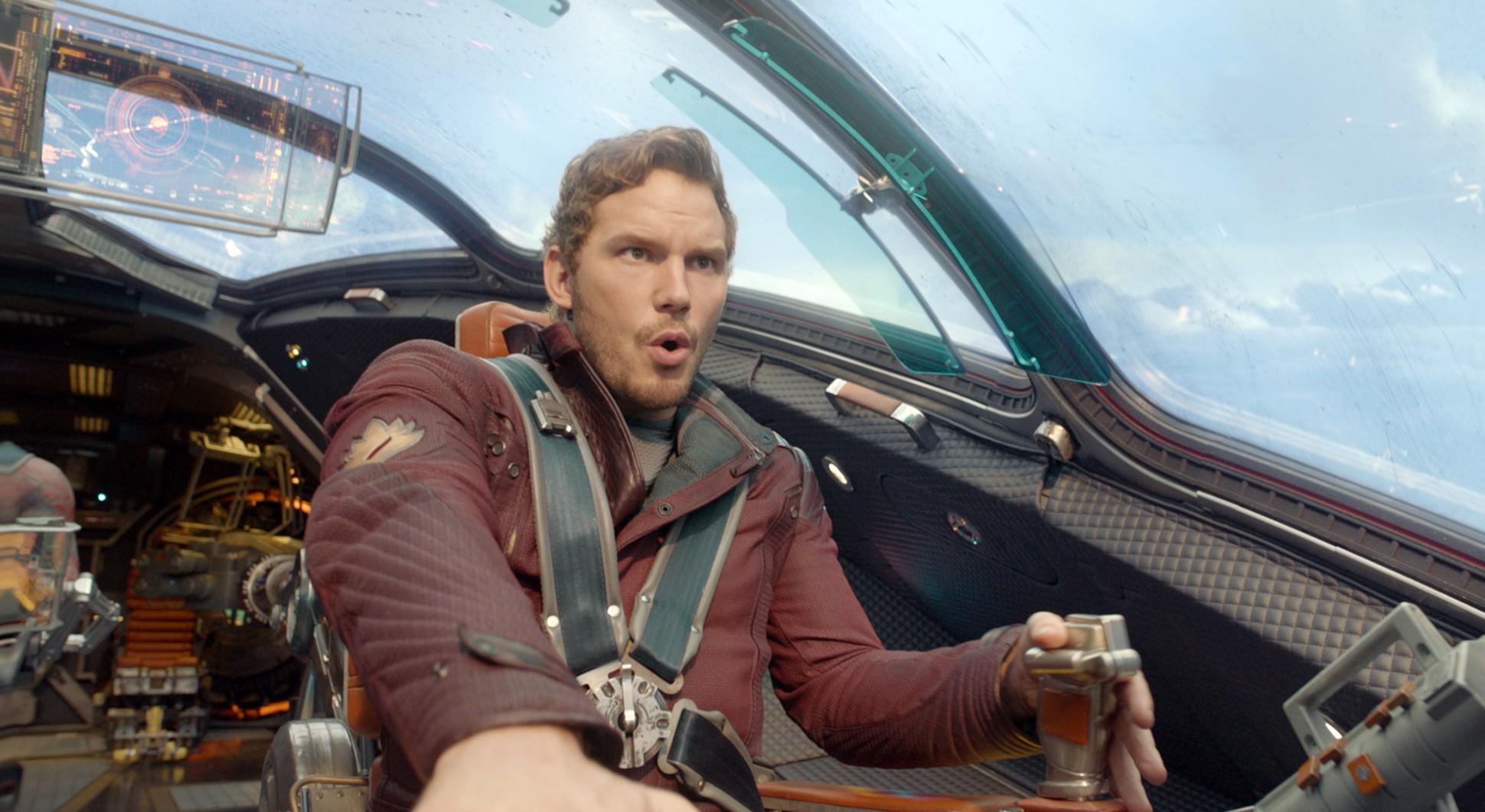
“We’re just like Kevin Bacon,” says green-skinned warrior Gamora (Zoe Saldana) to her half-human, half-alien companion Peter Quill (Chris Pratt), who previously taught her all about “the legend of Footloose” and its iconic hero.
And that’s just one of many largely 1980s-era pop references that populate Guardian of the Galaxy, the self-referential comic-book movie that rescued the Marvel Cinematic Universe from bombastic repetition with lots of laughs via reference humor (“If I had a blacklight, this would look like a Jackson Pollock painting,”), light-hearted sci-fi parodies, and endlessly silly name-dropping (“Well, I come from a planet of outlaws: Billy the Kid, Bonnie and Clyde, John Stamos,”).
Part of what makes James Gunn’s Guardians such a success is the ensemble cast that includes a lot of A-listers in very odd roles, such as Vin Diesel tree-like humanoid Groot, Bradley Cooper’s big-mouthed, genetically engineered raccoon, Rocket, and WWE professional wrestler-turned-actor Dave Bautista’s humorless warrior Drax the Destroyer.
These are the misfits that make up the titular Guardians, who, armed with their wits, specialized skills, and a mix tape of soft favorites from the 1960s, 1970s and early 80s (Redbone’s 1973 hit “Come and Get Your Love” or Quill’s hilarious “dance off bro” against dark lord Ronan the Accuser [Lee Pace] to the Five Stairsteps’s “Ooh Child” are each inspired standout sequences), will help save the galaxy, or at least the peaceful citizens of Xandar.
Sure, it’s a calorie-rich and over-stuffed confection, but for old school Marvel comic book collectors, and anyone who cut their sci-fi teeth on a stable diet of 1970s and 1980s content, Guardians of the Galaxy is a fully realized world and one obsessed as much as its fans with the minutiae of yesterday’s space operas, 8-tracks, and Heather Locklear pinups.